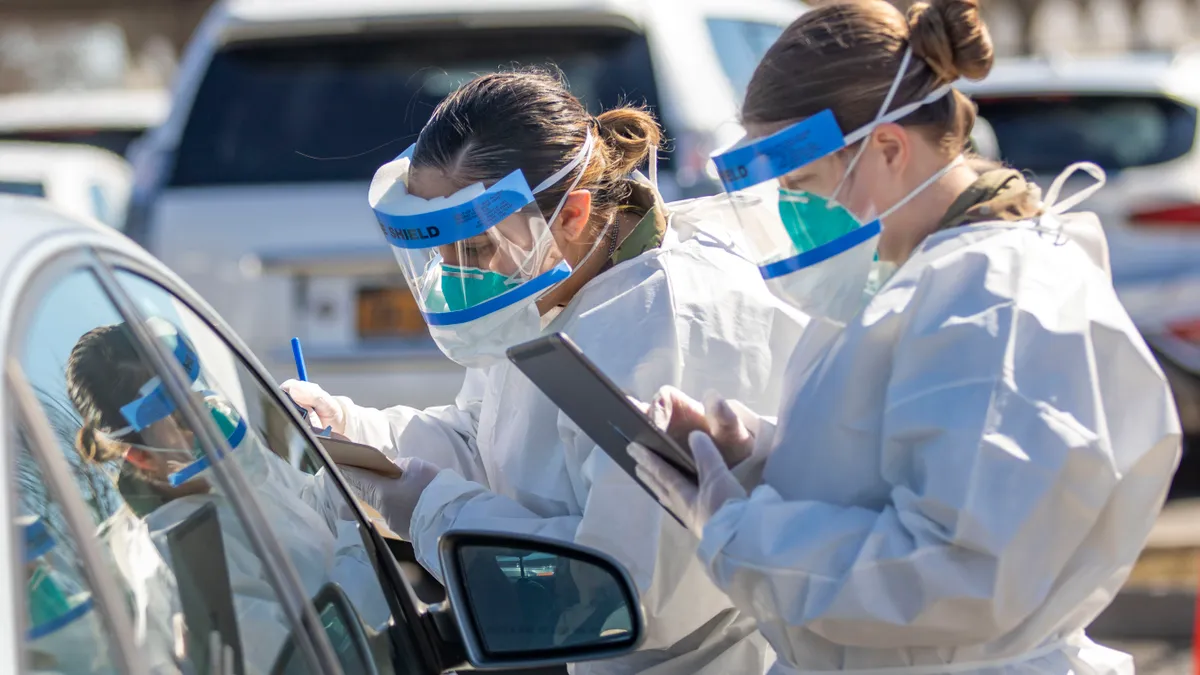Dive Brief:
- Massachusetts high school senior Emmanuel Cuevas, whose parents are doctors, is using his 3D printer to make personal protective gear for two hospitals, District Administration reports.
- John Provost, superintendent of Northampton Public Schools, where Cuevas attends, says his efforts show the importance of information technology and innovation pathways curriculum, and that he is among a number of students who are organizing to meet coronavirus-related needs.
- Other districts are also using 3D printers to create face shields. Hamilton County Schools in Tennessee also donated other types of personal protective equipment such as gloves, masks and gowns.
Dive Insight:
With more career and technical education and technology in high schools, students have had opportunities to learn to develop products and devices that help others in the community. For instance, students at West Leyden High School, near Chicago, have previously used a 3D printer to make custom prosthetic hands for those who can’t afford them. It’s the outreach that’s important, Frank Holthouse, who taught engineering at West Leyden, told Fast Company.
But now, the closure of most schools nationwide has led districts capable of doing so to transition to remote learning. And while few students likely have access to 3D printers at home, administrators can mobilize the tools at disposal in their buildings.
Many districts host makerspaces that have allowed students to come up with their own creations. Many feature 3D printers, and even if they are currently inaccessible to students, these tools offer educators another chance to lend a hand in their communities during this health crisis.
A number of DIY movements have popped up nationwide, along with a selection of online resources. This work can also be documented to supplement future lessons on collaboration, teamwork and problem-solving skills, and students could even be encouraged to research the most effective use of makerspace tools to produce PPE equipment and parts when equipment is accessible. The goodwill generated within the community will likely last well beyond the current crisis, experts say.












